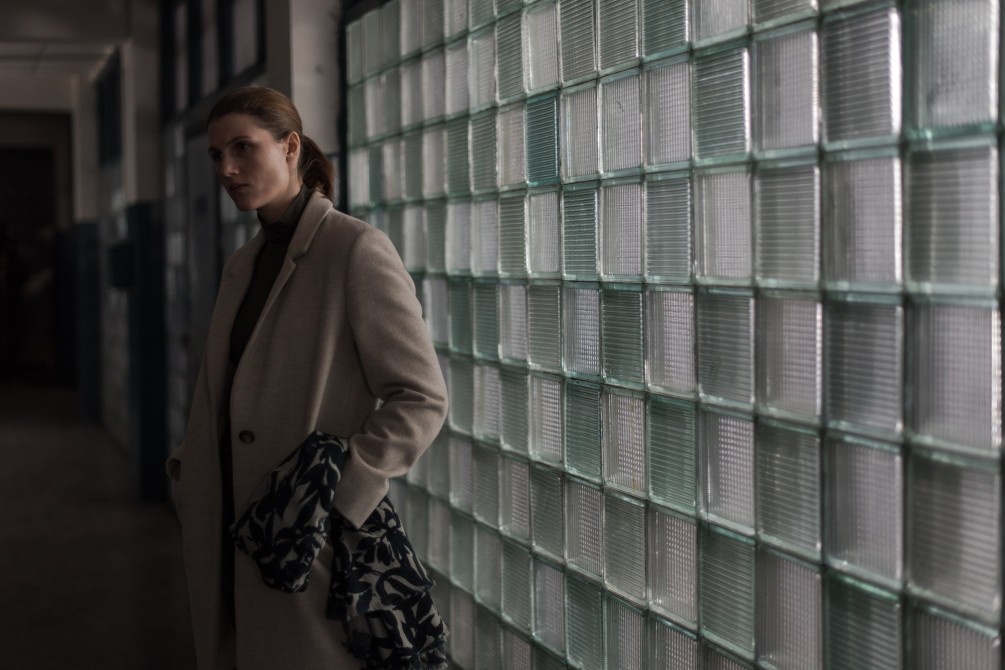
By Steve Prokopy
Filmmaker Andrey Zvyagintsev has become something of a master at conveying what many of the dark corners of Vladimir Putin’s Russia look like without saying it outright. It’s a skill I’m guessing many Russian artists have mastered since he took over as President of the Russian Federation in 2000, just a few years before Zvyagintsev landed his first directing credit with 2003’s THE RETURN, a film about a long-absent father who returns to visit his two sons and whip them into shape to become “real men.” Hmmmm…
Since then, Zvyagintsev has made one impressive and revealing film after another, including 2011’s ELENA and the 2014, Oscar-nominated LEVIATHAN. At the 2017 Cannes Film Festival, he debuted his latest emotionally devastating work LOVELESS (recently nominated for an Oscar as well), which begins as a story of a missing child but turns into a not-so-subtle examination of the deep-seated corruption that is rotting the political and social infrastructure of so much of Russia today.
Defying expectation once again, Zvyagintsev introduces us the a married couple still living together but in the death throes of a particularly bitter divorce. Boris (Alexey Rozin) and Zhenya (Maryana Spivak) can’t stand the sight of each other, and they have no issues allowing the toxicity of their relationship spill over onto their 12-year-old son, Alyosha (Matvey Novikov), who has become so damaged from even being near the war between his parents that he walks through life like a specter. He works at his computer, cries intermittently, but mostly Alyosha just listens and absorbs every word like a body blow. Both having moved on to new lovers in their individual live (in fact, Boris’s girlfriend is many months pregnant), neither really has the time to deal with their son, making him feel all the more unwanted.
It takes days for this self-absorbed, toxic twosome to even realize that Alyosha has gone missing, and for a while both they and the police believe the deeply unhappy child is simply hiding or has run away. But as time progresses, this scenario seems unlikely, and Boris and Zhenya are forced to be somewhat civil in a joint effort to find their son. In any other movie (particularly one made in America), the filmmakers might use this desperate search as a device to bring the parents together, but Zvyagintsev (along with co-writer Oleg Negin) already accepts that this relationship is dead and buried. He’s far more interested in the mechanisms that are set in motion to find the missing child.
The police seem annoyingly intent on labeling Alyosha a runaway, thus keeping their stats down on unfound missing children. Combining that attitude with the parents’ general lack of interest, and it becomes clear that the filmmaker is delivering a condemnation on the state of caring about anything or anyone outside of one’s own interests in Russia. Presumably by design, even the film itself frequently drifts away from the search to explore the deeper recesses of the parents’ lives. Boris’s girlfriend, Masha (Marina Vasilyeva), has an intolerable mother always whispering in her ear about what a bad provider Boris is. He works for a company with conservative values that would look down on him living with a pregnant woman who wasn’t his wife, so he’s desperate to finalize the divorce and remarry as soon as possible. Meanwhile, Zhenya is seeing an attentive, rich, older man, Anton (Andris Keishs), who seems to satisfy her on most fronts. While both new relationships appear better than they ones they are escaping, there’s something decidedly hollow and opportunistic about all of it—likely another comment on the new Russia.
With the police being of little help, a citizens’ action group steps in and takes the lead on the search for Alyosha. Not to imply that the director abandons the missing-child storyline, in fact, large portions of the movie are devoted to the slow and arduous task of investigating his disappearance. A handful of false leads are devastating, but the dedication of the resourceful volunteer group is one of the film’s few, genuine beacons of hope.
Honing his craft over a handful of films across 15 years, Zvyagintsev has mastered the art of allowing very specific events to fuel his allegory concerning the both the collective empathy of the Russian people and the destructive power the results when love is destroyed. What is almost more powerful and gutsy about LOVELESS is its moving commitment to avoiding a clean resolution to a great number of story threads. We’re simply extracted from this family’s many dramas and are forced to contend with the realization that most things in life don’t get closure, as much as we desire it. With cinema, more than life, we are used to an artificial sense of resolution, but this film refuses to offer an easy sense of completion, and if that leaves a knot in your stomach, then LOVELESS has done its job.
CLICK HERE for Showtimes & Advance Tickets to LOVELESS at the Music Box
Steve Prokopy is the chief film critic for the Chicago-based arts outlet Third Coast Review (www.ThirdCoastReview.com). For nearly 20 years, he was the Chicago Editor for Ain’t It Cool News, where he contributed film reviews and filmmaker & actor interviews under the name “Capone.”
